Are you looking for a reliable way to refer patients to a reproductive health clinic? Writing a well-structured letter can make all the difference in ensuring a smooth transition for your patients. In this article, we'll explore a straightforward template that simplifies the referral process while maintaining a professional tone. Read on to discover how to craft an effective referral letter that meets all necessary requirements!

Patient Information
A reproductive health clinic referral requires precise patient information, including the full name, date of birth, and insurance details of the patient. Precise medical history, including past treatments or surgeries related to reproductive health, needs documentation along with current medications. Important contact information, such as a reachable phone number and email address, facilitates follow-up. Additional details about presenting concerns, including symptoms or specific needs, improve the referral quality towards specialized care. Accurate referral dates, health provider signatures, and clinic contact information enhance communication between healthcare professionals.
Referral Reason
A referral for reproductive health services may be necessary for patients experiencing complications related to menstrual cycle irregularities or hormonal imbalances. This can include conditions such as polycystic ovary syndrome (PCOS) or endometriosis, affecting hormonal levels and reproductive capabilities. Symptoms may involve severe pelvic pain, abnormal bleeding patterns, or difficulties in conceiving, necessitating specialized care. Additionally, patients seeking family planning options or counseling regarding sexually transmitted infections (STIs) can benefit from a referral to a clinic equipped with expertise in reproductive health. Providers should ensure that the referral includes specific patient history and current treatment plans to facilitate continuity of care and optimize patient outcomes.
Medical History
A detailed medical history is essential for effective reproductive health care. This includes information about previous pregnancies, childbirth experiences, and any complications (such as preeclampsia or gestational diabetes) experienced during these events. Noting menstruation patterns (cycle length, regularity, and any associated symptoms) is crucial as it can indicate underlying conditions like polycystic ovary syndrome (PCOS) or endometriosis. Assessing personal and family medical histories concerning reproductive health issues (such as ovarian cancer or genetic disorders) enhances understanding of potential risks. Understanding previous treatments, including surgeries (like hysterectomy) or fertility interventions (like in vitro fertilization), ensures comprehensive care. Current medications (including hormonal contraceptives or hormone replacement therapy) and allergies are vital to prevent adverse reactions during treatment. Additionally, lifestyle factors (such as smoking, alcohol consumption, and exercise habits) can impact reproductive health and should be discussed. Proper documentation of this medical history allows for a tailored approach to the individual's reproductive health needs, enabling optimal care and successful referrals.
Contact Information
A reproductive health clinic referral may streamline access to specialized services, emphasizing the importance of comprehensive care. Clinics such as the Planned Parenthood Federation of America, which operates over 600 health centers nationwide, provide vital services including contraception, STD testing, and prenatal care. Referrals can connect patients with licensed practitioners who offer personalized treatment plans and education on reproductive health. Locations, such as community health centers or private practices, often employ experienced staff to ensure supportive environments for sensitive discussions. Clear contact information ensures seamless coordination among healthcare providers, facilitating timely appointments and continuity of care for individuals seeking reproductive health services.
Follow-Up Instructions
Reproductive health clinics provide essential services to individuals seeking reproductive care, including family planning, sexually transmitted infection (STI) tests, and prenatal consultations. Patients referred to these clinics should adhere to specific follow-up instructions to ensure comprehensive care. Appointments should be scheduled within two weeks of the initial referral to maintain continuity of care. Important documentation, such as medical history and previous lab results, should be brought to the appointment. Patients must also inquire about any necessary preparations, such as fasting for blood tests or specific medications to stop before consultations. Adhering to these steps maximizes the effectiveness of the follow-up care and aids in addressing reproductive health concerns promptly.
Letter Template For Reproductive Health Clinic Referral Samples
Letter template of patient referral to a reproductive health specialist.
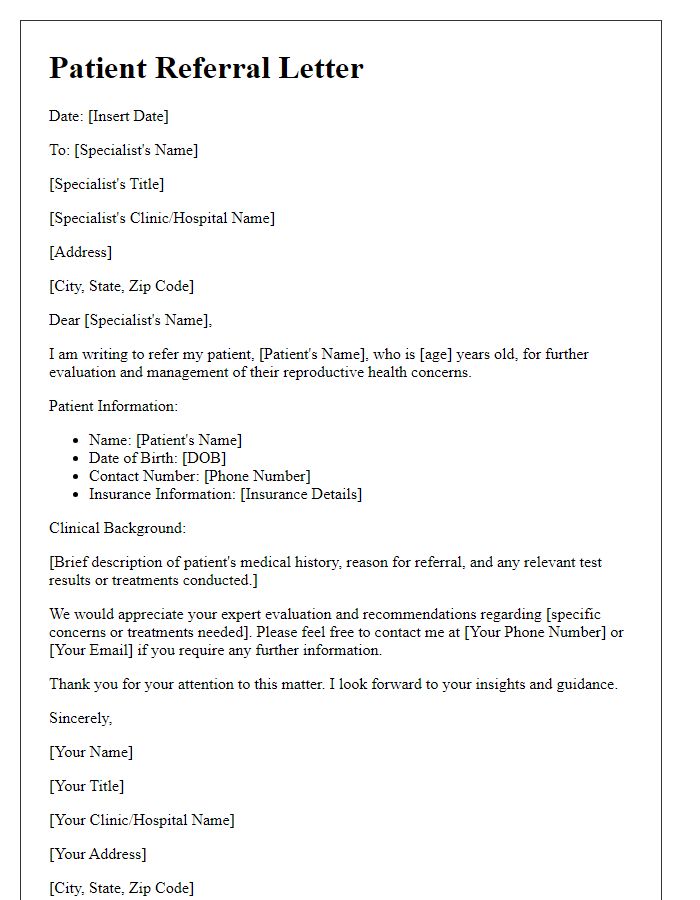
Letter template of introduction for reproductive health care provider referral.
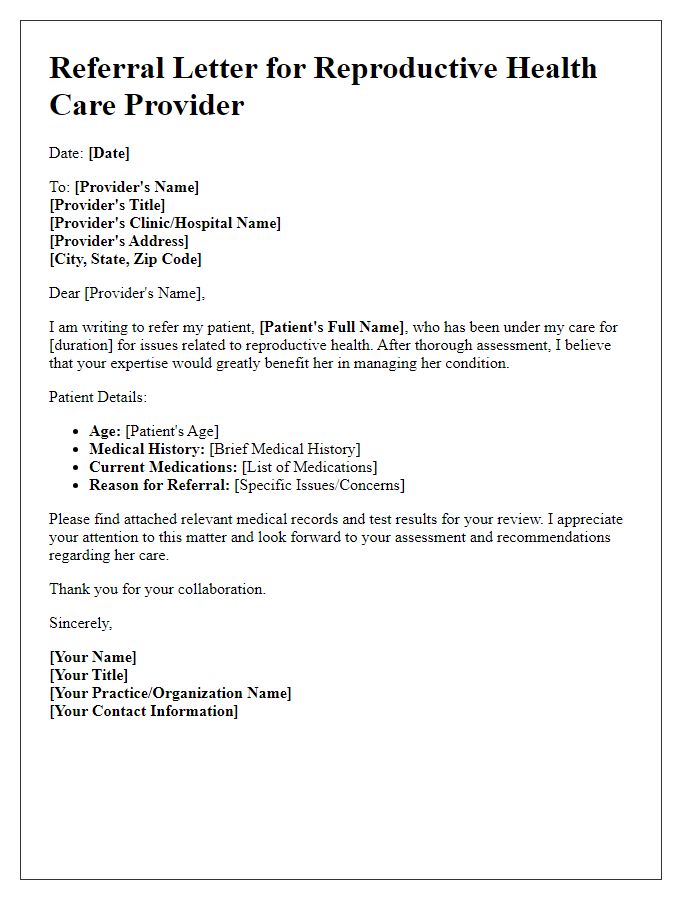
Letter template of referral for family planning and reproductive health.
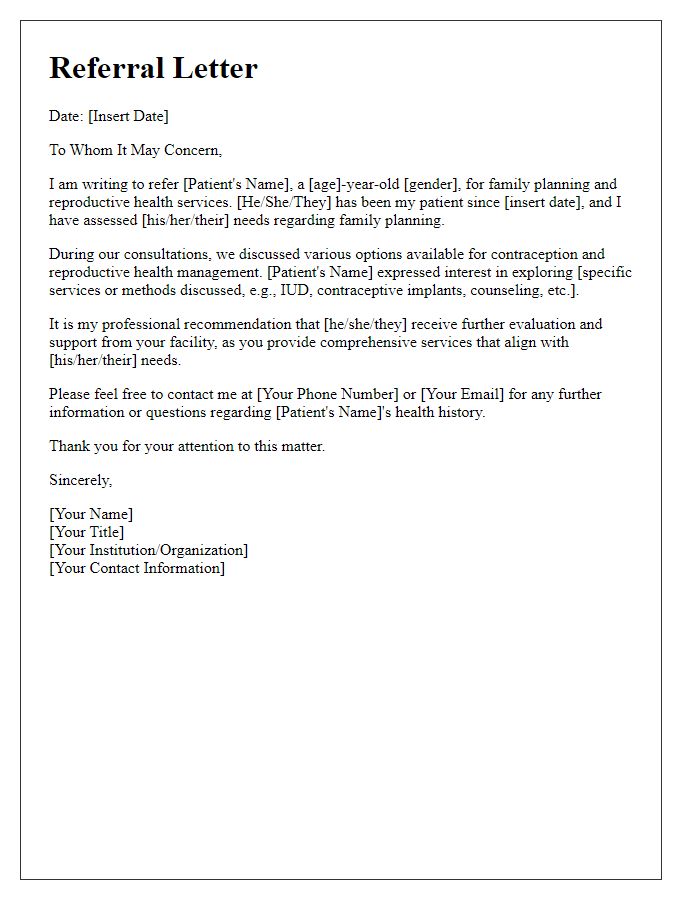
Letter template of transfer for reproductive health evaluation and treatment.
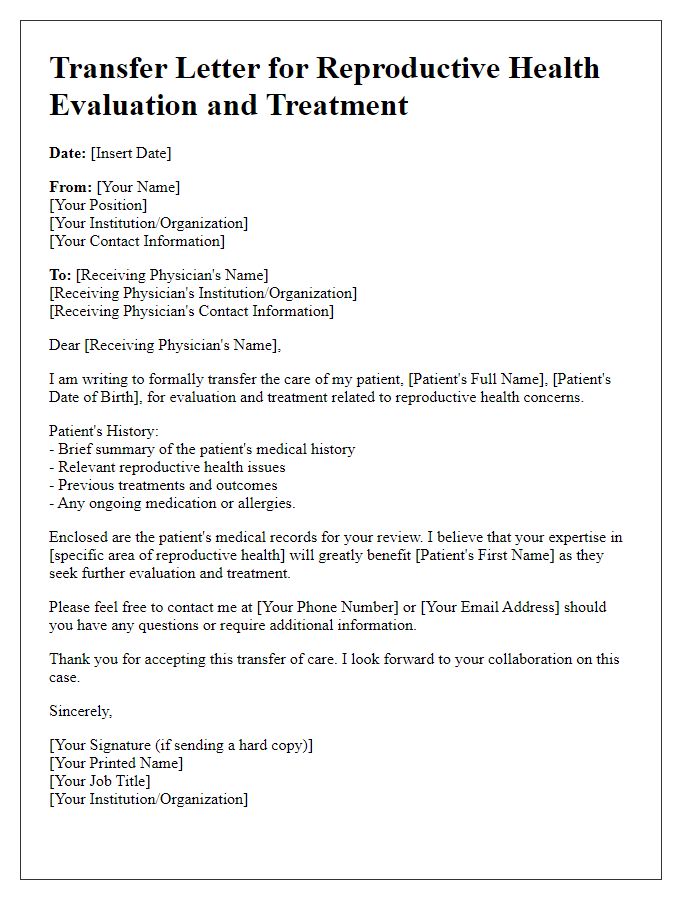
Letter template of clinical referral for reproductive health consultation.

Letter template of referral from primary care to reproductive health clinic.
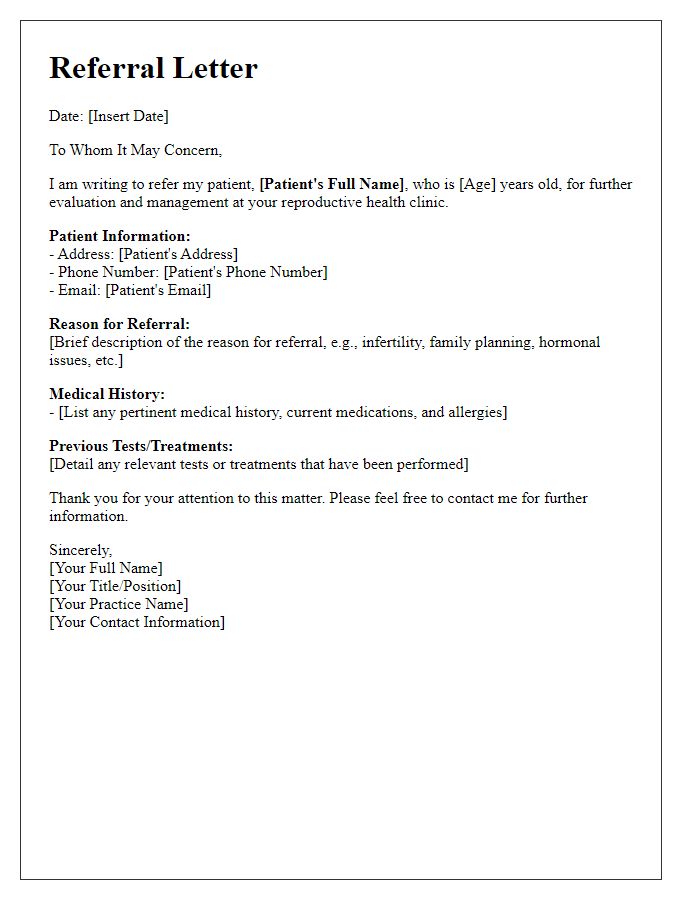
Letter template of interdisciplinary referral for reproductive health needs.
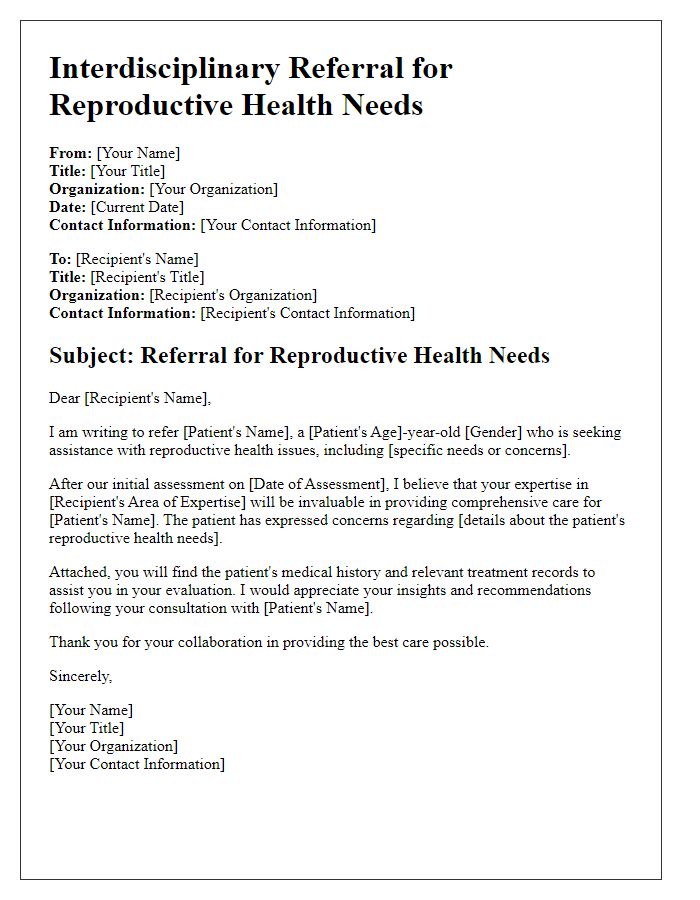

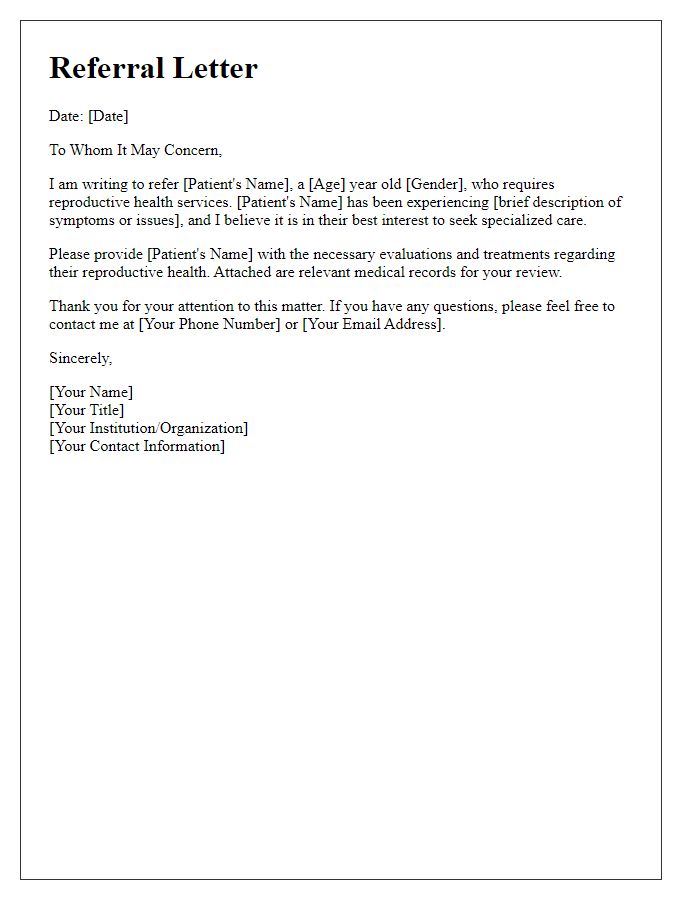
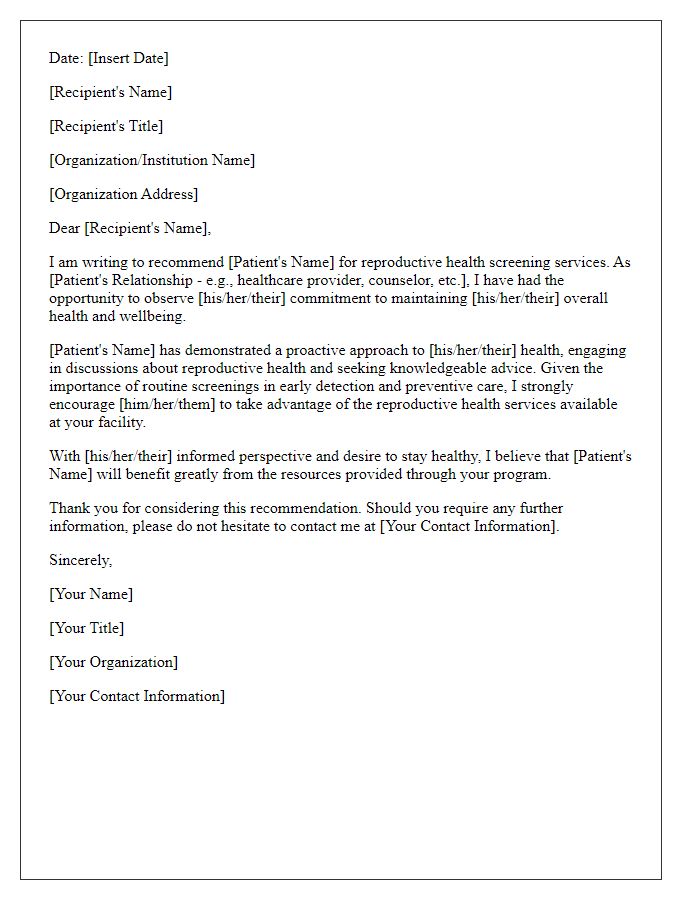
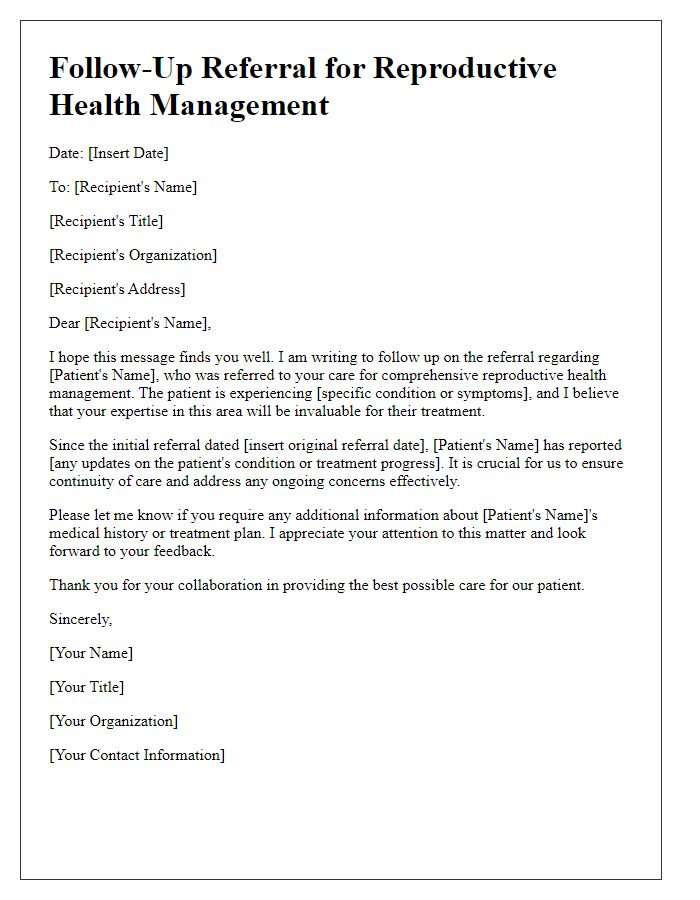


Comments